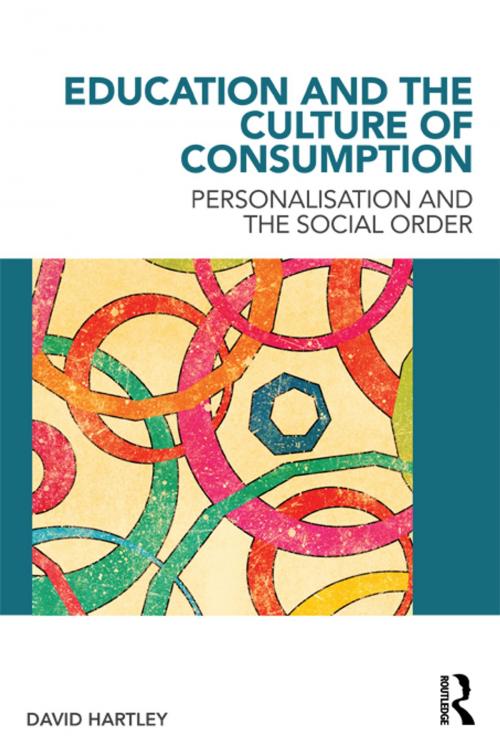Education and the Culture of Consumption
Personalisation and the Social Order
Nonfiction, Reference & Language, Education & Teaching, Educational Theory, Educational Reform, Philosophy & Social Aspects| Author: | David Hartley | ISBN: | 9781136730870 |
| Publisher: | Taylor and Francis | Publication: | June 25, 2012 |
| Imprint: | Routledge | Language: | English |
| Author: | David Hartley |
| ISBN: | 9781136730870 |
| Publisher: | Taylor and Francis |
| Publication: | June 25, 2012 |
| Imprint: | Routledge |
| Language: | English |
For nearly 200 years the organisational form of the school has changed little. Bureaucracy has been its enduring form. The school has prepared the worker for the factory of mass production. It has created the 'mass consumer' to be content with accepting what is on offer, not what is wanted. However, a ‘revised’ educational code appears to be emerging. This code centres upon the concept of ‘personalisation’, which operates at two levels: first, as a new mode of public service delivery; and second, as a new ‘grammar’ for the school, with new flexibilities of structure and pedagogical process. Personalisation has its intellectual roots in marketing theory, not in educational theory and is the facilitator of 'education for consumption'. It allows for the 'market' to suffuse even more the fabric of education, albeit under the democratic-sounding call of freedom of choice.
Education and the Culture of Consumption raises many questions about personalisation which policy-makers seem prone to avoid:
- Why, now, are we concerned about personalisation?
- What are its theoretical foundations?
- What are its pedagogical, curricular and organisational consequences?
- What are the consequences for social justification of personalisation?
- Does personalisation diminish the socialising function of the school, or does it simply mean that the only thing we share is that we have the right to personalised service?
All this leads the author to consider an important question for education: does personalisation mark a new regulatory code for education, one which corresponds with both the new work-order of production and with the makeover-prone tendencies of consumers?
The book will be of great interest to postgraduate students and academics studying in the fields of education policy and the social foundations of education, and will also be relevant to students studying public policy, especially health care and social care, and public management.
For nearly 200 years the organisational form of the school has changed little. Bureaucracy has been its enduring form. The school has prepared the worker for the factory of mass production. It has created the 'mass consumer' to be content with accepting what is on offer, not what is wanted. However, a ‘revised’ educational code appears to be emerging. This code centres upon the concept of ‘personalisation’, which operates at two levels: first, as a new mode of public service delivery; and second, as a new ‘grammar’ for the school, with new flexibilities of structure and pedagogical process. Personalisation has its intellectual roots in marketing theory, not in educational theory and is the facilitator of 'education for consumption'. It allows for the 'market' to suffuse even more the fabric of education, albeit under the democratic-sounding call of freedom of choice.
Education and the Culture of Consumption raises many questions about personalisation which policy-makers seem prone to avoid:
- Why, now, are we concerned about personalisation?
- What are its theoretical foundations?
- What are its pedagogical, curricular and organisational consequences?
- What are the consequences for social justification of personalisation?
- Does personalisation diminish the socialising function of the school, or does it simply mean that the only thing we share is that we have the right to personalised service?
All this leads the author to consider an important question for education: does personalisation mark a new regulatory code for education, one which corresponds with both the new work-order of production and with the makeover-prone tendencies of consumers?
The book will be of great interest to postgraduate students and academics studying in the fields of education policy and the social foundations of education, and will also be relevant to students studying public policy, especially health care and social care, and public management.















